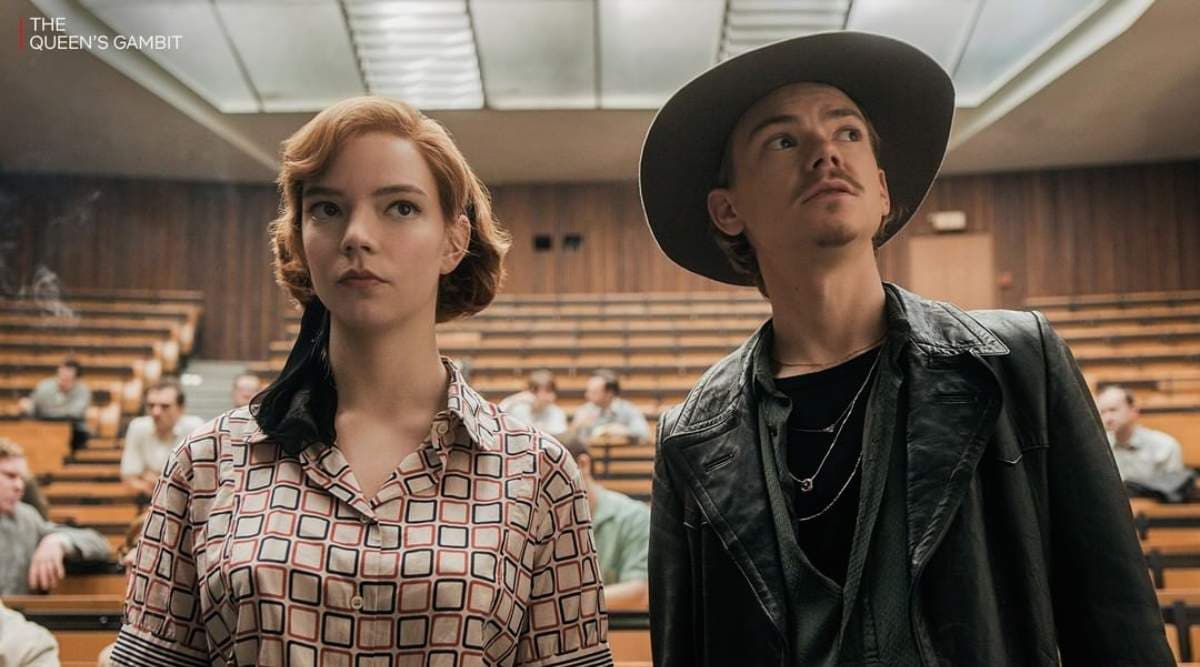The Queen’s Gambit executive producer William Horberg is happy that the Netflix series is being credited for reviving the public's interest in chess.
The Queen’s Gambit has emerged as one of the most talked-about shows on Netflix but the team was “terrified” and worked hard to make the game of chess cinematic, says series executive producer William Horberg.
Breaking down the secret behind some of the most thrilling sequences on the limited series, Horberg said they used a variety of approaches to bring drama to the story about the orphan chess prodigy, Beth Harmon.
“We were terrified but fear is a great motivator. Trying to find a way to make the chess cinematic was the focus of much of our preparation. In the writing, that meant giving each game a reason, an emotional context of what the stakes were for Beth,” Horberg told PTI in an email interview.
“This suggested different ways to shoot each game, when it was important to see the pieces, when we could play the match on the faces. We knew we needed a variety of approaches,” he added.
The producer, whose credits include Hollywood hits such as The Talented Mr. Ripley and Cold Mountain, is happy that The Queen’s Gambit is being credited for reviving the public’s interest in chess.
Also read | Explained: The Queen’s Gambit, and the rise and fall of chess
The story, whose title refers to a chess opening move, is adapted from Walter Tevis’ 1983 novel of the same name and revolves around Harmon, who learns the basics of the game from the custodian (Bill Camp) of her orphanage in the 1950s.
Harmon (Anya Taylor-Joy) becomes famous as one of the most talented players in the male-dominated board game but she must overcome her emotional scars, drug and alcohol dependency to become a world champion.
Scott Frank wrote the series that he co-created with Allan Scott. Frank, Scott and Horberg serve as executive producers on the series.
Horberg, who previously worked on another chess story about the great American player Bobby Fischer in 1993’s Searching for Bobby Fischer, said the slow speed of the game makes it challenging to be translated on the screen.
Recalling how Searching for Bobby Fischer failed at the box office despite earning good reviews, Horberg said the failure of the film may have “scared the industry off” such stories. This is why, he said, they faced hurdles when they tried to get the series financed as a film.
Also read | The Queen’s Gambit: A mesmerising series
“The reality of chess is that it is too slow a game for the language of cinema. But more than that, I think there is an economic concern; it’s not seen as a commercial subject,” he said.
The second half of the series focuses on Beth’s struggle to defeat Vasily Borgov, the current Soviet world champion chess player and her strongest competitor (played by Marcin Dorocinski), while also exploring the politics of the era from a neutral standpoint.
“One post I saw described the show as pro-Communist!” he said, adding that the plot was important for the protagonist’s character development, including a scene where Beth rejects funding from a group of Church ladies for her Russia trip when they want her to make a statement about her Christian beliefs.
Horberg said Tevis probably wanted to make a point about “American individualism versus the more socialist cooperation of the Soviets”.
“But we weren’t looking to drive a political message with the show; we were honoring the novel and some of the choices Tevis had made.”
Taylor-Joy, who first broke on the international scene with her roles in “The Witch” and “Split”, was always the first choice for the series, he said.
Also read | The Queen’s Gambit becomes Netflix’s most watched scripted limited series
“She was our first choice. She read the book and loved it, and met with the director and they immediately saw things the same way regarding her character. She committed before we even had a script. She was such a gift to us, her choices were always surprising and true,” he said.
The series, also starring Moses Ingram, Isla Johnson, Christiane Seidel, Rebecca Root, Chloe Pirrie Akemnji Ndifornyen, Marielle Heller, Harry Melling, Patrick Kennedy, Jacob Fortune-Lloyd, and Thomas Brodie-Sangster debuted on Netflix on October 23.
Source: Read Full Article


